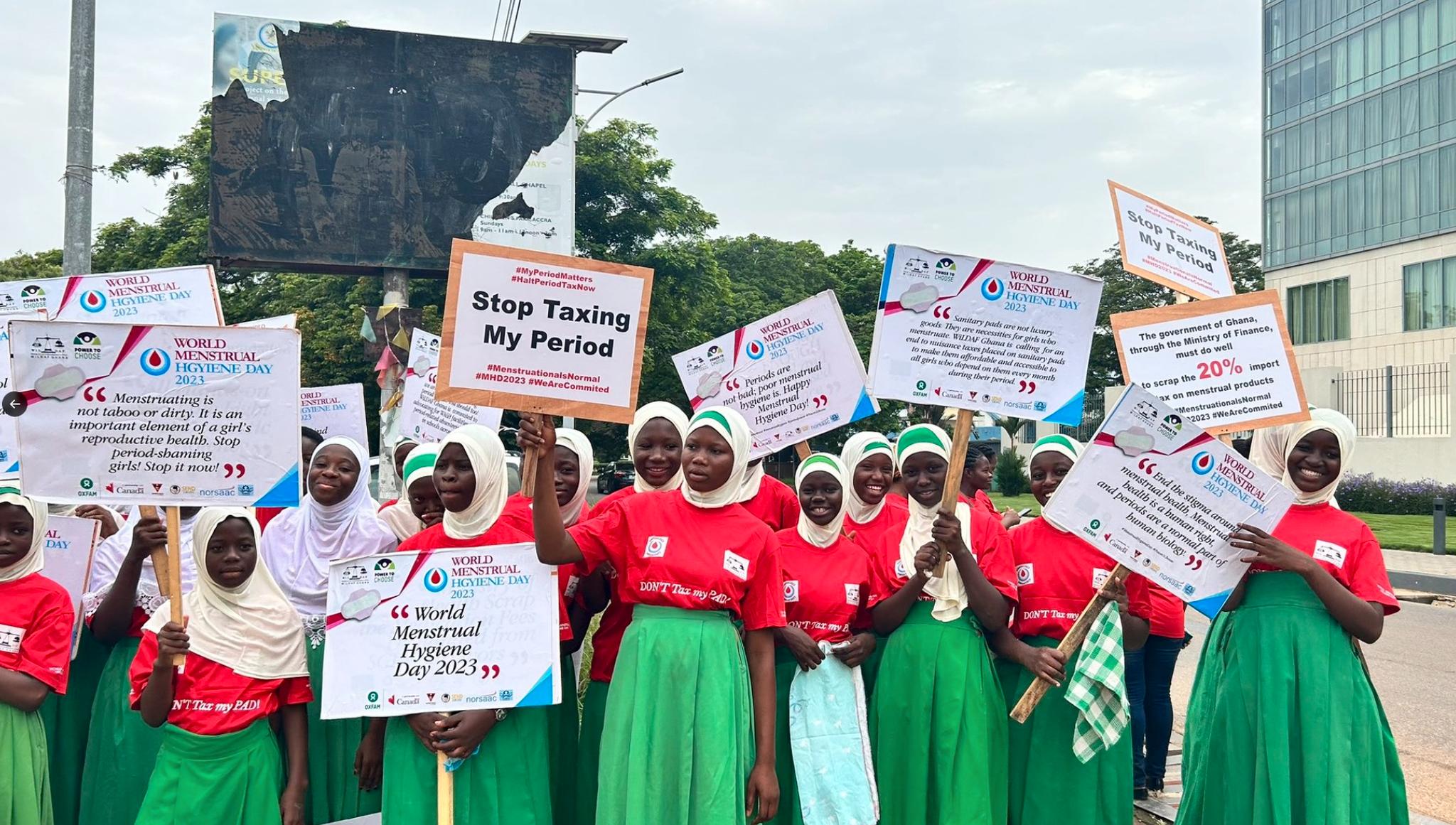For millions of African women, pads and tampons are so expensive that they cannot afford them. This has consequences for health and education.
Stop taxing my period, the women of Ghana demand. Photo: Yeềng/Twitter/X
sea view
Published: 21/08/2023 23:34
Is it a luxury to buy pads? The authorities in Ghana think so. This summer they put a luxury tax on menstrual products. As a result, pads and tampons became dramatically more expensive.
Many Ghanaian women already struggled to buy what they need for their periods.
According to BBC has increased the price from 4.88 Ghanaian cedis for a pack of pads to 20 cedis after the new tax came into place. In NOK, this corresponds to a price increase from around NOK 5 to NOK 20.
According to PlushCare’s survey, Norwegian women pay 10.86 dollars (around 115 kroner) a month. Ghanaian women pay $14.18.
Forced into prostitution
Even before the new tax came, the Ghanaian newspaper wrote Pulse that girls in the countryside are forced into prostitution to afford hygiene products.
BBC talked to “Joyce”. She works in a shop, the only salary she gets is tips from customers. Previously, it was enough for her to buy pads. The only person who could help her with money was an older man who demanded sex in exchange for sanitary napkins.
#EndPeriodPoverty has become a widely used slogan in many African countries. Photo: Yeềng, Twitter/X
sea view
Dropping out of school
Earlier this month, the Ugandan Red Cross sounded the alarm. They have calculated that 5 million schoolgirls in Uganda are struggling to get sanitary napkins. This means that they must stay at home when they are menstruating.
– Schoolgirls who get blood on their clothes are often harassed by teachers, boys and other girls. We hear that it is an important reason why girls drop out of school, Ismael Mulindwa told the newspaper Daily Monitor mid August. He is director of Uganda’s Ministry of Knowledge.
For the girls, this means that they miss up to 18 per cent of the lessons.
Similar warnings come from several African countries.
– I skip school. For once I got stains on my school uniform. Then the boys teased me, 15-year-old Opoku told the newspaper Global Citizen.
She is from a poor region in Ghana. She and many of her friends have to use toilet paper, old textiles or plant leaves. It increases the risk of infections.
The price of pads and tampons is not the only problem. In the poor countries, there is often a lack of clean toilets and clean water.
Hardest in Africa
Several organizations compile overviews of how much it costs to menstruate in different countries. There are many ways to calculate.
The most meaningful calculations show how much of the income is spent on menstrual expenses. Some calculate in relation to average income, others measure against the statutory minimum income.
No matter how you calculate, African countries come out badly. The American healthcare company PlushCare measured the price of a month’s need for pads and tampons as well as painkillers. They looked at over 100 countries.
In Europe, the expenditure for women is well below 1 percent of the average monthly salary. The cheapest is for British women, who pay 0.12 per cent of their salary. In Norway, the expenses are 0.24 per cent.
Algeria comes out very badly. A worker with an average wage spends 14.8 per cent on pads and pills. A Ghanaian woman spends 9.39, assuming she is lucky enough to have an average salary.
BBC chose a different method. They looked at selected countries. This measured the price of the cheapest products against the statutory minimum wage. Measured in that way, the expenditure for Ghanaian women is 13.2 percent of the salary.
In Great Britain, the expense is 0.3 percent of the minimum wage.
International campaigns
On social media, “period poverty”, menstrual poverty, has become a widely used term. Several aid organizations direct the spotlight on women’s special problems.
It is not only in Ghana and Uganda that women struggle. The American newspaper The Christian Science Monitor was in Nigeria last year. There, the price increase on sanitary napkins has been dramatic.
The price of a ground bandage increased from 250 naira (3-4 kroner) to 1,200 naira (16 kroner) in two years. Thus, it becomes too expensive even for people with an average income.
All over the world there has been a sharp increase in prices due to the pandemic. It hits the poorest hardest.
2023-08-21 21:34:22
#Pads #tampons #tenth #monthly #salary
